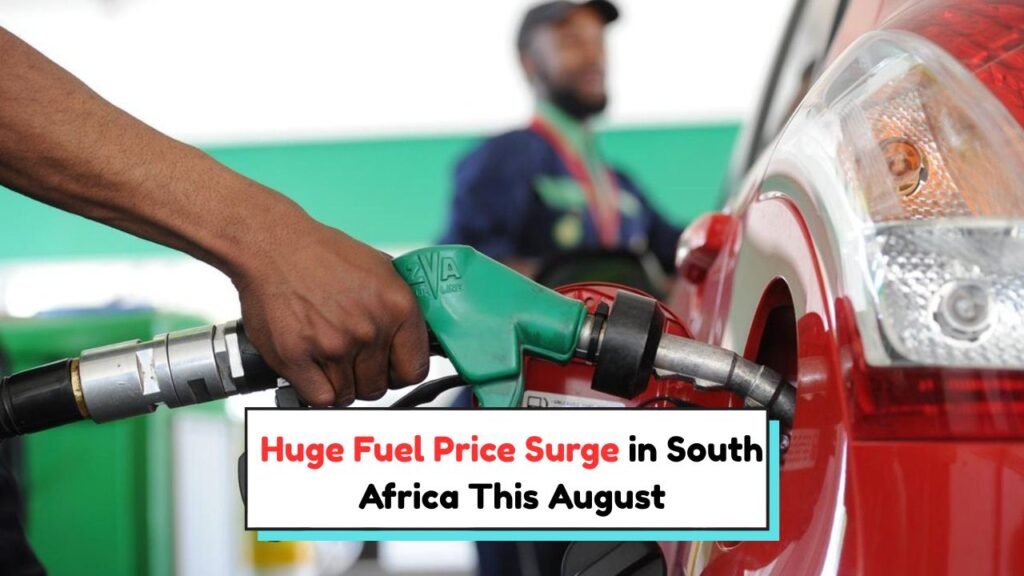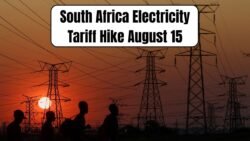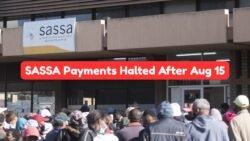Petrol Price Shock in South Africa: South Africans are bracing themselves for another adjustment at the pumps as the latest petrol price changes come into effect on the 12th of August. This shift in fuel prices is a significant event for many, affecting everything from daily commutes to the cost of goods and services across the country. With global oil prices fluctuating and the Rand’s performance influencing local costs, these updates are essential for budgeting and planning. As we delve into the specifics of the new rates, it’s crucial to understand the broader implications they hold for South Africa’s economy and individual households.

Understanding the New Petrol Rates: What to Expect on 12 August
The announcement of new petrol rates effective from 12 August has sparked widespread interest and concern among South Africans. The Department of Energy has detailed the adjustments, which see petrol prices rising by a significant margin. This is primarily due to a combination of international oil market trends and the Rand’s volatility against major currencies. As a result, the cost of unleaded petrol is expected to increase by several cents per litre, impacting both urban and rural areas. For consumers, this hike means a direct increase in travel expenses, which could lead to a ripple effect on the prices of goods and services. Businesses reliant on transportation will need to re-evaluate their logistics costs, potentially passing these costs onto consumers. This change underscores the importance of staying informed about fuel price trends and preparing for their economic impact.
Factors Behind South Africa’s Petrol Price Increase
The latest petrol price increase in South Africa is attributed to several key factors. International oil prices have been on the rise, driven by geopolitical tensions and production cuts in major oil-producing countries. These global dynamics have a direct impact on local fuel costs. Additionally, the Rand’s performance against the US dollar plays a critical role. Fluctuations in currency exchange rates can either mitigate or exacerbate the effects of international oil price changes. In recent months, the Rand has experienced significant volatility, influenced by both domestic economic conditions and global market trends. This combination of external and internal factors contributes to the complexity of predicting petrol price changes. For South Africans, it highlights the need for strategic financial planning, especially as fuel prices are a major component of household expenses.
Economic Implications of Rising Petrol Prices in South Africa
The increase in petrol prices in South Africa has far-reaching economic implications. As fuel costs rise, transportation expenses for goods and services are likely to increase, leading to higher prices for consumers. This can contribute to inflationary pressures within the economy, affecting purchasing power and potentially slowing economic growth. For businesses, especially those in the logistics and transportation sectors, rising fuel costs may necessitate adjustments in pricing strategies and operational efficiencies. Households, particularly those on fixed incomes, may need to re-evaluate their budgets to cope with increased living costs. Moreover, the transport sector itself could see a shift in demand, with more commuters considering alternative modes of travel to mitigate the impact of higher fuel prices. Understanding these implications is crucial for policymakers and businesses alike as they navigate the challenges posed by fluctuating fuel costs.
Strategies for Coping with Petrol Price Hikes
With the latest petrol price hike on the horizon, South Africans are seeking ways to manage the increased costs. One effective strategy is to adopt fuel-efficient driving habits, such as maintaining a steady speed, reducing idling time, and keeping vehicles well-maintained. Carpooling and using public transport are also viable options to reduce individual fuel consumption. For businesses, optimizing logistics and supply chain operations can help mitigate the impact of rising fuel costs. This might include consolidating shipments, renegotiating supplier contracts, or investing in more fuel-efficient vehicles. Additionally, exploring alternative energy sources, like electric or hybrid vehicles, could offer long-term savings. On a broader scale, advocating for policy changes that promote energy efficiency and sustainable transport solutions could help address future fuel price challenges. By implementing these strategies, both individuals and businesses can better navigate the economic landscape shaped by changing petrol prices.







